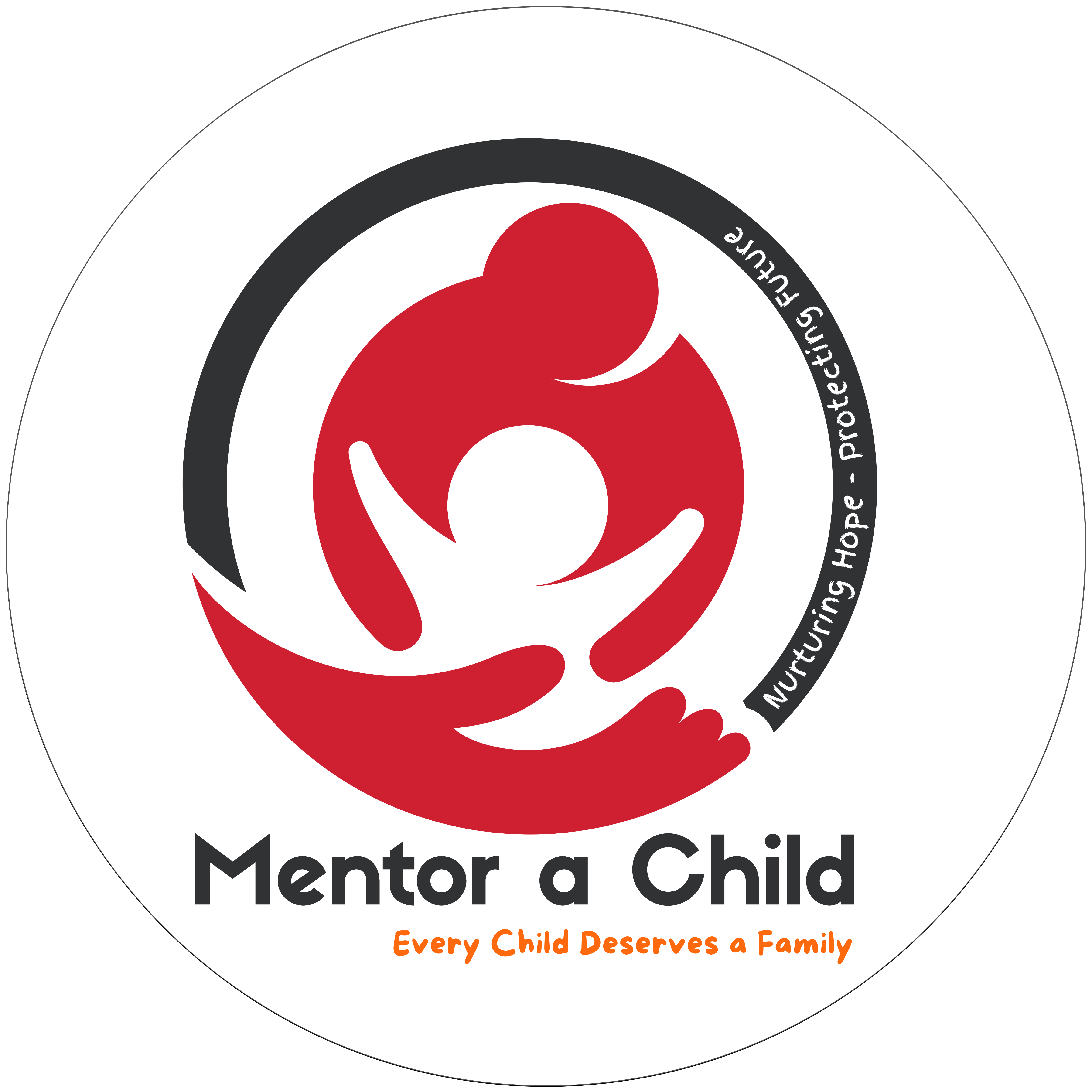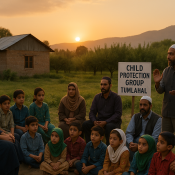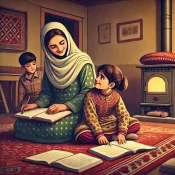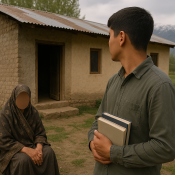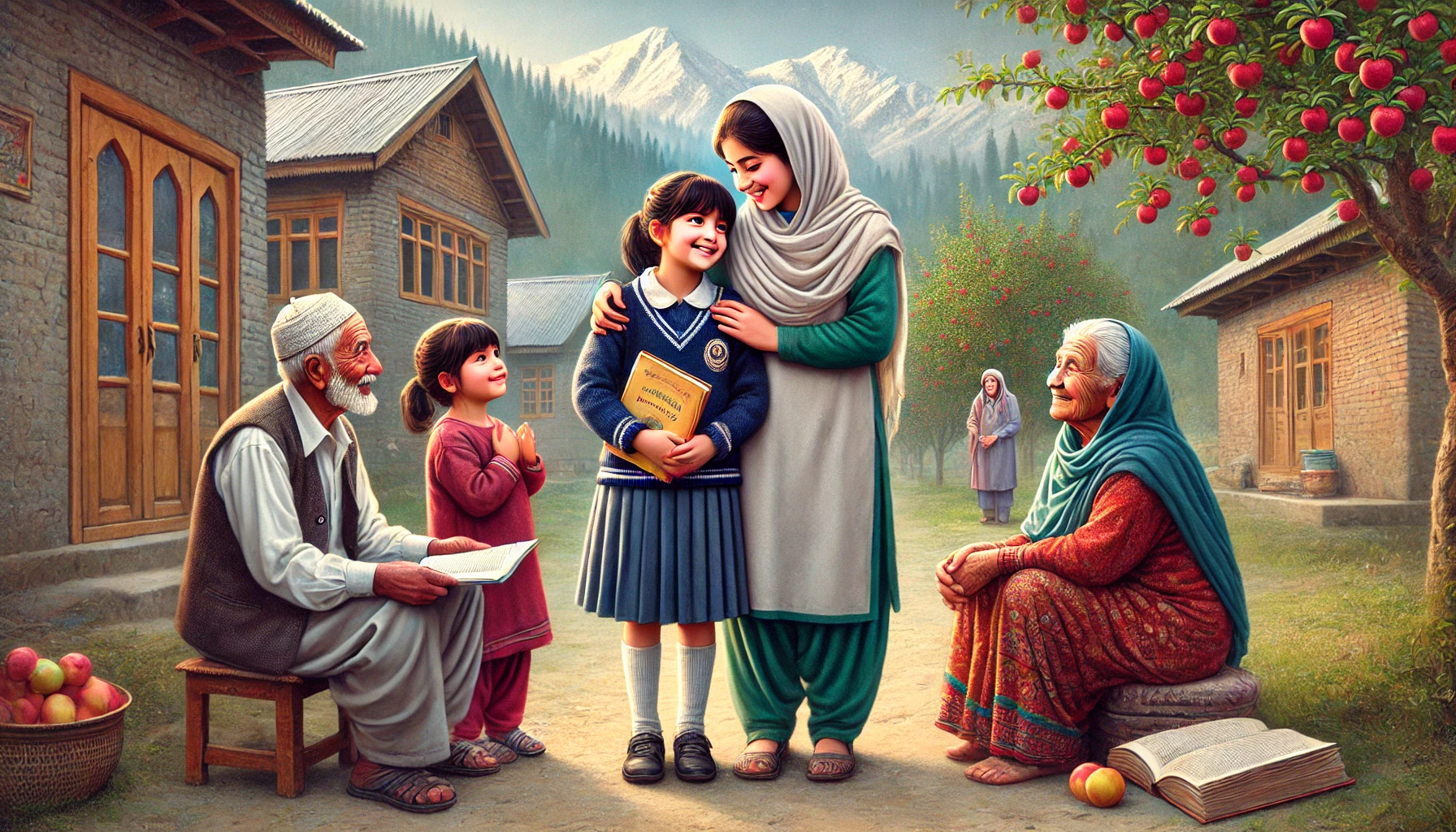
Laiba & Atiqa
Introduction
This case study reports on the successful implementation of family-based alternative care for twin sisters Laiba and Atiqa (Both Name Changed) from Buran village in Kashmir under the UNICEF-supported project ‘Building Community-Based Care Mechanism for Children in Need of Care and Protection in Kashmir, Jammu and Kashmir’.
Background
Laiba and Atiqa, both 9-years-old, were studying in 4th standard at a local government school. Their father, Tariq (name changed), was working in a private school and was the only bread earner of the family. He ensured that his daughters received quality education in the same private school. However, in 2021, Tariq was diagnosed with a life-threatening illness. Despite using all the family’s financial resources to treat him, he died of the disease, leaving the family in financial distress.
Following Tariq’s death, the children’s mother, Bilquees, struggled to manage the household without any income source. Eventually, she remarried and left the children behind, resulting in their care being transferred to their elderly and ailing grandparents. Due to financial constraints, Laiba and Atiqa had to shift from private to government school, compromising their education quality.
Identification and Intervention
The HWVO was implementing the UNICEF-supported community-based care project for vulnerable children in the village. In the monthly CPG meeting, the case of Laiba and Atiqa was picked up and extensively discussed. The group felt that the children were vulnerable and the elderly grandparents could not provide the necessary care for them. Institutionalization was ruled out, and alternative care solutions were sought.
Action Taken
The CPG conducted a series of engagements with the extended family to explore options for kinship care. Following constructive discussions, Atiqa was placed in kinship care with her maternal aunt, and Laiba continued living with her grandparents, subject to periodic supervision by the aunt. The CPG also facilitated the documentation process for both children, ensuring access to necessary welfare schemes.
Outcome
The case was sponsored by Mission Vatsalya. Following proper scrutiny, Laiba’s case was sanctioned with financial aid that aggregated to INR 36,000. Both children are now looked after under Case Management Approach with follows ups regularly to ensure the child’s overall – health, emotional well-being, and educational development.
Important Lessons
Family-Based Care: The principle of kinship care had ensured that both children continued to stay with their respective extended families and were not institutionalised.
The members of the organisation CPG, who play a very active role, really ensured their children’s safety and sound care.
Proper financial help provided through intervention under Mission Vatsalya kept them continued on the pathway to education.
The cases of Laiba and Atiqa reflect the critical role of community involvement and government programs in family-based alternative care. The collaborative support from CPG members, extended family, and support programems for the children have been a viable safety net ensuring their holistic development and protection.
